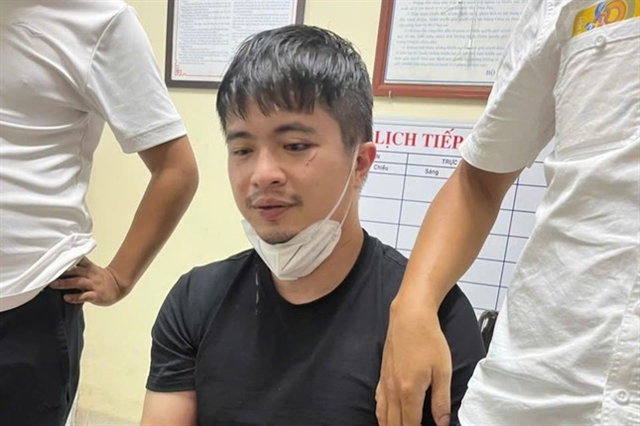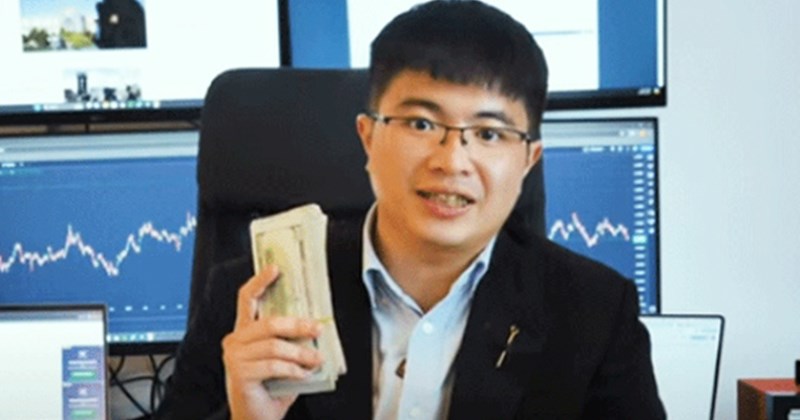The Rise and Fall of Pho Duc Nam’s Fraud Empire
Unmasking Vietnam’s Largest Forex Scam
Introduction: A Tale of Deception

What happens when social media influence meets financial fraud? For thousands of unsuspecting investors in Vietnam, the answer is devastating losses, shattered trust, and a multi-year battle for justice. In 2021, TikToker Pho Duc Nam, known as “Mr. Pips,” launched an elaborate forex scam that promised high returns and zero risk. Behind the flashy platforms and charismatic online persona, however, lay a web of deceit spanning international borders.
This is the story of Vietnam’s largest forex fraud—a case that has exposed vulnerabilities in financial regulation, the dangers of unchecked social media influence, and the human cost of greed.
Key Takeaways:
- Pho Duc Nam’s scam empire involved fake trading platforms promising high returns and zero risk, deceiving over 2,660 victims.
- The operation relied on social media influence, especially TikTok, to lure unsuspecting investors into fraudulent schemes.
- Authorities seized VND5.3 trillion ($208M) in assets, including gold bars, luxury items, and foreign accounts linked to the scam.
- Global cooperation was key, with arrests spanning Vietnam, Thailand, and asset freezes in Singapore and Cambodia.
- Victims suffered devastating financial losses, emphasizing the need for stronger consumer protections and financial literacy.
The Operation: Fake Platforms and False Promises
At the heart of this scam were five fraudulent trading platforms—Alpha.com, Gtmx.com, Btfx.com, Enzofx.com, and Gkfx.com—that mimicked legitimate forex firms. These platforms used MT4 and MT5 software to appear credible, luring victims with promises of effortless profits. Nam and his associates, including Le Khac Ngo (“Mr. Hunter”) and a Turkish national based in Cambodia, ran the operation through an unlicensed shell company, ARTEX VINA LLC.
With 44 offices across Vietnam and nearly 1,000 employees, the group recruited over 2,660 victims through social media and cold calls. The strategy was simple yet effective: show small initial profits to build trust, then fabricate losses and demand additional funds to “recover” investments. Behind the scenes, all funds were funneled into the suspects’ accounts.
The Arrests: Cracking Down on Fraud
The scam began unraveling on December 6, 2024, when Hanoi Police arrested Pho Duc Nam and over 30 accomplices in a landmark bust. Authorities seized assets worth VND5.3 trillion (US$208 million), including gold bars and luxury items. Nam now faces charges of fraudulent appropriation of property and money laundering.
This breakthrough highlighted the role of social media in financial fraud. Nam’s TikTok persona as “Mr. Pips” had been instrumental in convincing victims to invest, showcasing how influencers can exploit their reach for criminal purposes.
International Pursuit: The Global Reach of Greed
The investigation soon expanded beyond Vietnam’s borders. On July 7, 2025, Ngo Thi Theu—the wife of fugitive Le Khac Ngo—was arrested in Thailand with Interpol’s assistance while attempting to flee to Turkey. Authorities also targeted assets linked to Nam in Singapore and Cambodia, freezing SGD1.2 million in his Singapore bank account.

Despite these successes, challenges remain. The extradition of Theu has been delayed due to childcare issues, while international warrants are still active for four fugitives, including Ngo and a Turkish ringleader. The scam’s global nature underscores the need for cross-border cooperation in tackling financial crimes.
Prosecution Expansion: Unveiling the Network
By mid-2025, Hanoi Police had charged 44 suspects and identified nearly 1,100 individuals involved in the operation. Among these were 870 sales agents who earned commissions ranging from 1% to 4% for recruiting victims. Legal proceedings against approximately 550 sales staff began in October 2025—an unprecedented move to hold lower-level participants accountable.
The scale of the investigation is staggering: authorities have interviewed over 1,000 individuals and confirmed 571 victims so far. Recoveries include foreign assets in Singapore, Cambodia, and Australia, totaling VND5.3 trillion ($201 million).
Human Cost: The Victims’ Stories
Behind the numbers are real people whose lives have been upended by this scam. Many victims invested their life savings or borrowed money based on promises of guaranteed returns. For some, the financial loss was accompanied by emotional trauma as they grappled with betrayal and regret.
One victim shared their experience anonymously: “I trusted them because everything looked professional—the platforms, the profits… I never imagined it was all fake.” Stories like this highlight the urgent need for stronger consumer protections and financial literacy.
Lessons Learned: Safeguarding Against Future Scams
The Pho Duc Nam case serves as a stark reminder of the risks associated with unregulated financial platforms and the influence of social media personalities. Key takeaways include:
- Verify Legitimacy: Always check whether trading platforms are licensed by regulatory authorities.
- Beware of Guarantees: Promises of high returns with zero risk are almost always fraudulent.
- Scrutinize Influencers: Social media endorsements should never replace due diligence.
Authorities are now urging victims to file restitution claims for recovered assets while continuing their pursuit of fugitives.
Conclusion: A Call to Action
The downfall of Pho Duc Nam’s fraud empire is a victory for justice but also a wake-up call for investors worldwide. As financial scams become increasingly sophisticated, vigilance is crucial. Ask yourself: how can you protect your investments from deception?
This case is far from over—its implications stretch beyond Vietnam’s borders to global financial systems. For now, one thing is clear: trust must be earned, not blindly given.
What’s Next?
Stay informed with TrustScoreFX as we continue tracking this case and others like it. Share your thoughts—how do you think regulators should address scams fueled by social media?
People Also Ask:
What were the key tactics used in Vietnam’s largest forex scam?
The scam used fake trading platforms, social media influence, and cold calls to promise high returns and lure victims.
How did authorities uncover Pho Duc Nam’s fraud empire?
Police conducted a landmark bust, arresting over 30 suspects and seizing assets worth VND5.3 trillion ($208M).
What lessons can investors learn from this case?
Investors should be cautious of unregulated platforms, verify credibility, and avoid trusting flashy promises on social media.
How has this scam impacted financial regulation in Vietnam?
The case exposed vulnerabilities in regulation, pushing for stricter oversight and international cooperation against financial crimes.